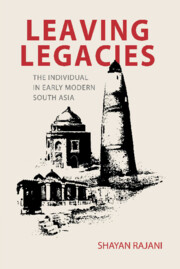2 - The Rise of Self-Representation
Published online by Cambridge University Press: 28 November 2024
Summary
At the end of the sixteenth century, when Akbar's chief historian and theoretician of Mughal power, Abul Fazl, compiled a list of nobles in The Institutes of Akbar (Ain-i Akbari), he maintained a studious silence on the details of their lives. He gave only their names and numerical rank, arranged in descending order from 10,000 to 200. Conscious of breaking with earlier imperial histories, which contained ample details of the lives of the nobility, he explained, “It does not suit the encomiast of the king to praise others.” Besides, he continued, he would be constrained by court politics, to “mention that which is worthy of praise, and to keep silent on that which cannot be approved.” His point was that only the emperor, who alone stood above the fray, could judge his subjects. Akbar's mansabdari system, and its imperial ranking, should be the sole way to assess Mughal nobles.
The mansabdari system heralded the centralization of power in the hands of the Mughal emperor. The independence of nobles was curtailed by restricting intergenerational transfer of power and discouraging a sustained association between the nobility and land. Under the mansabdari system, the numerical rank assigned to each noble was tied to status, military responsibilities, and emoluments. This rank, its conferment and withdrawal, augmentation and reduction, was at the sole discretion of the emperor. A noble could not pass on his rank, position, or wealth to his descendants. After his death, these perquisites were resumed by the court. A noble's son could progress within the mansabdari system only at the pleasure of the emperor. This was not considered arbitrary power. Rather, Akbar presented himself as possessing unmatched discernment, which enabled him to select the right officials to maintain order in his empire. For nobles, and their sons, this meant that birthright alone could not guarantee individual or intergenerational success. One had to distinguish oneself as an individual.
In the mansabdari system, the nobility was not paid directly from imperial coffers. It received rights to collect taxes from specific lands. These revenue assignments were determined by the imperial bureaucracy. They were often non-contiguous and frequently rotated. Many a time, they did not correspond to a noble's traditional base of power, discouraging territorially consolidated opposition against the court.
- Type
- Chapter
- Information
- Leaving LegaciesThe Individual in Early Modern South Asia, pp. 49 - 84Publisher: Cambridge University PressPrint publication year: 2025

